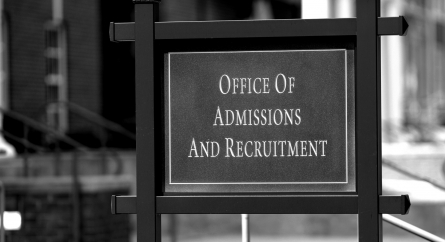Race-Conscious Admissions Policies Set for Review by Supreme Court
In January 2022, the United States Supreme Court stated that it would hear arguments in Students for Fair Admissions v. President and Fellows of Harvard College, through which it will review the role of race in the college admissions process.
As noted in greater detail in our prior blog post “Post-Trial Arguments Heard in Harvard Admissions Discrimination Case,” the group Students for Fair Admissions (“SFFA”) filed suit in Massachusetts federal court against Harvard, alleging that the school had gone beyond the accepted use of race as one “plus factor” among many in its race-conscious admissions process, to the detriment of Asian applicants and unlawfully favoring Black, Hispanic, and Native American applicants.
However, Harvard maintains that it takes race into account “in a flexible and nonmechanical way” to benefit “highly qualified candidates,” and that its admissions process is consistent with the precedent set by the Supreme Court in Grutter v. Bollinger (2003) and Fisher v. University of Texas (2016, known as Fisher II), which ruled that a “whole person review” that considers many qualities of an applicant, including race, is lawful. Indeed, in October 2019, the U.S. District Court for the District of Massachusetts ruled in Harvard’s favor, a decision that was then affirmed by the First Circuit Court of Appeals.
Now, following the SFFA’s petition for review, the Supreme Court is poised to decide not only whether Harvard unlawfully overemphasized race in its admissions process, but whether institutions of higher education can use race as a factor in admissions at all, potentially overturning decades of precedent.
As of this post, the case is expected to be heard during the 2022-2023 term. We will continue to monitor the case and provide updates as they become available.
Client Tip
For now, it remains lawful for institutions to employ a holistic, race-conscious admissions program as set forth in Fisher. However, it is entirely possible that this could change in the coming months when the Court issues its decision.
Categorized: Discrimination
Tagged In: college admissions, race discrimination






